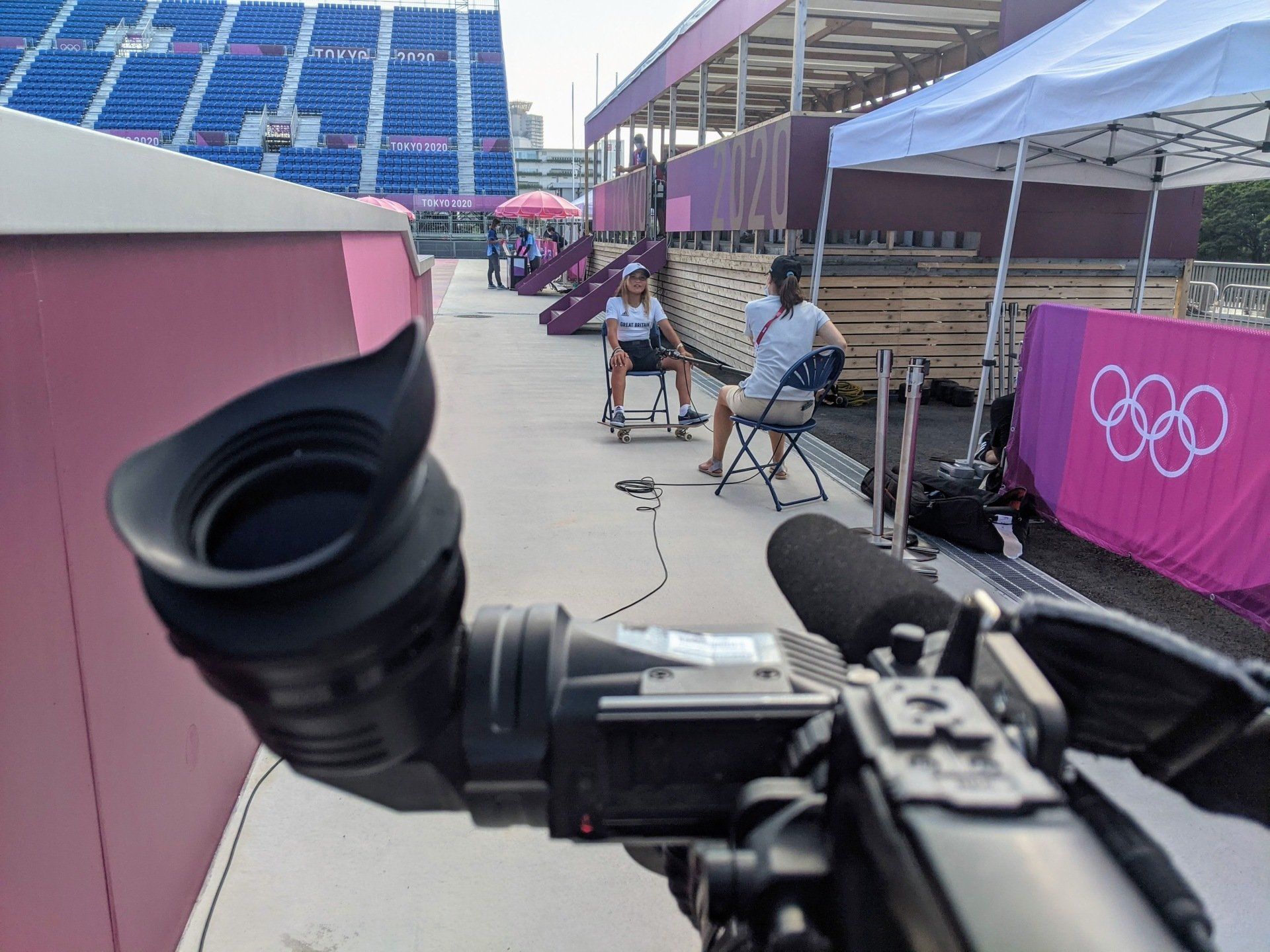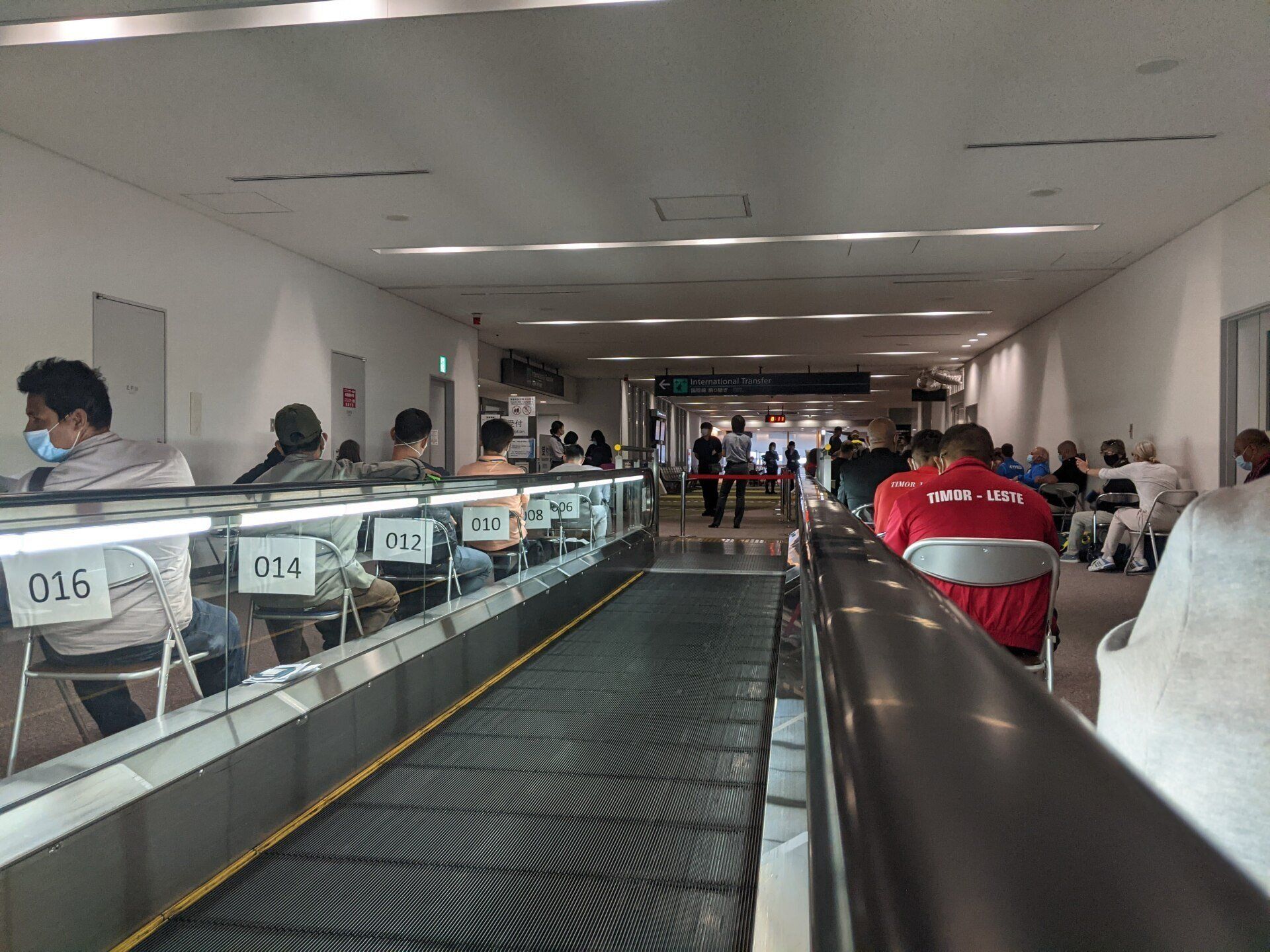Life Behind the Lens - Race to South Korea
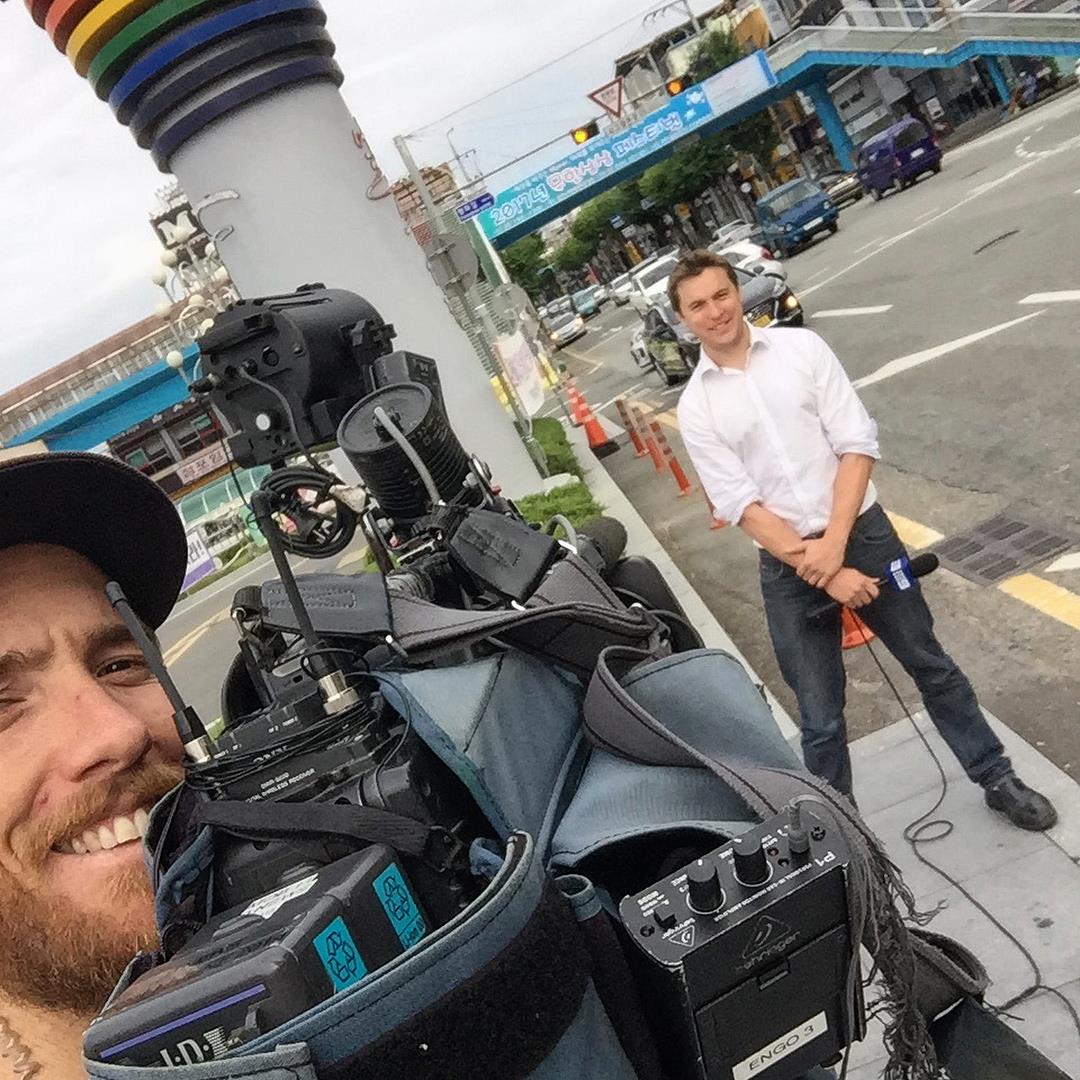
Slide title
Write your caption hereButton
“Can you go to Seoul?"
"F--- yeah I can!"
That's how it started. One minute I was on a stakeout near Ipswich, the next racing off to get organised for a breaking news trip to South Korea.
"Will you make it?"
"I'm stuck in morning traffic, but I'll absolutely make it."
It was 7:30am and my international flight departed in 3.5 hours.
Crunch time. I was a 45 minute drive from the airport and needed to get home and pack a travel bag, but also had equipment to pick up from the studio at Mount Coot-tha. There was no time, so I needed to make a plan, fast.
I called my wife and asked her to pack my bag and passport and meet me at the airport. She is always supportive and was happy to rush to help. Next, I rang work to see if there was a cameraman available who could bring me the equipment I would need.
I arrived at the airport first, followed by my wife and son. She handed me my packed bag, complete with a supply of snacks because she knows that I usually don't have time to stop and buy food on trips away. I gave my 4 year old son a big hug and said goodbye, not knowing how long this trip would be.
Then my colleague, Gibbsy, pulled up and started unloading the equipment I needed. Frantically, we worked together to pack my camera, audio and lighting gear. I had a total of 7 pieces of luggage, including my personal bag and 6 cases full of gear.
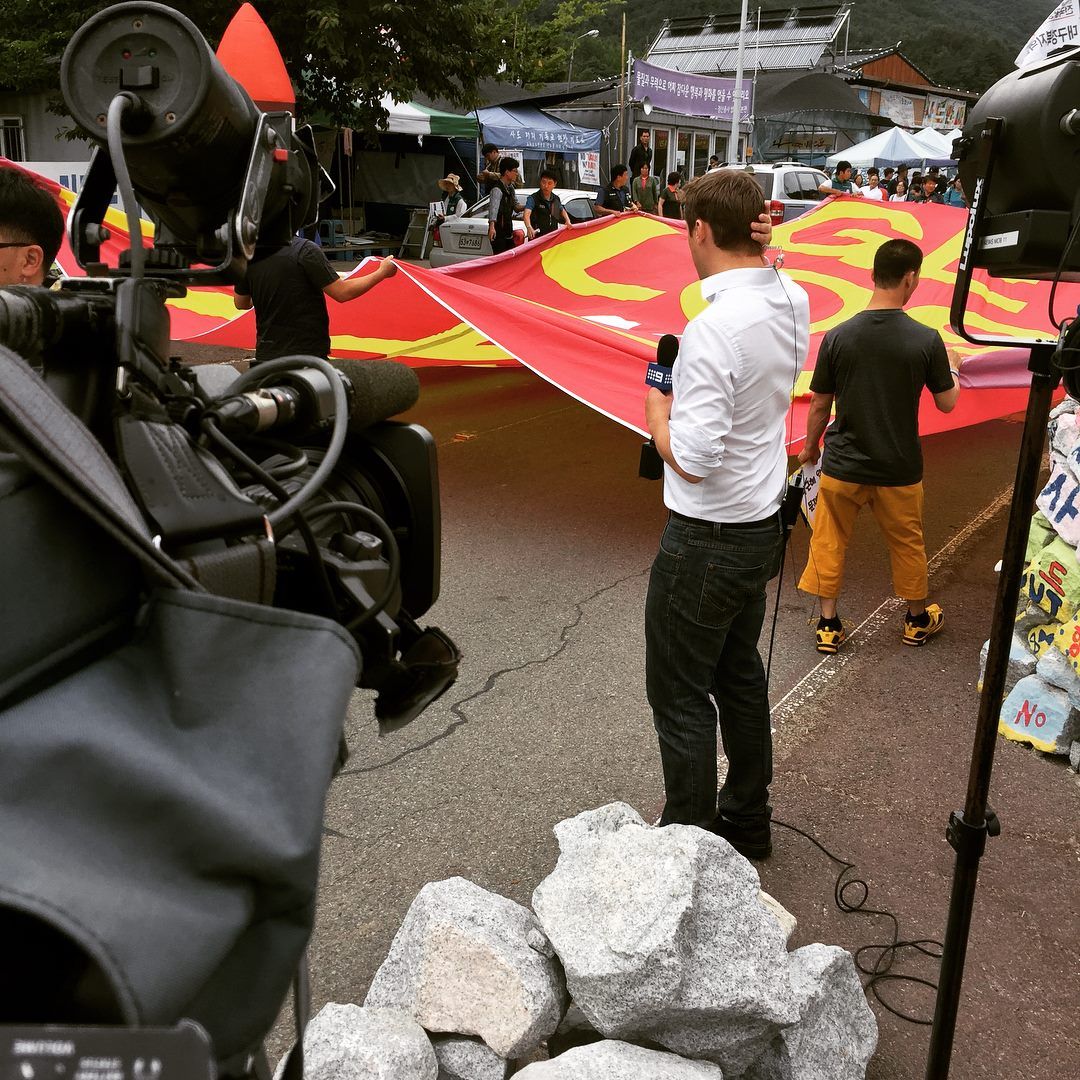
Slide title
Write your caption hereButton
After an adrenaline-filled morning, we boarded the first flight on our 19 hour journey to Seoul.
The next step was making it through airport security. This can be slow at the best of times, but much worse when I am putting a broadcast camera and multiple spare batteries through an x-ray machine.
Often I am questioned by security and it can take some time to clarify that I am permitted to carry specific batteries and confirm they have their terminals taped and are stored separately in my backpack.
When I’m flying into a new country with multiple cases of camera gear, I'm always worried about making it through customs and immigration. Especially a last minute trip like this. Luckily, this time it was smooth sailing and we were through in record time.
At the arrivals hall we were met by our driver and fixer. A fixer is someone who can speak the local language and provide us with regional knowledge that we wouldn't normally have on the ground in a foreign country. Without them we would be lost and it would make our job of news gathering difficult.
Our first task was to immediately set up for live crosses to our breakfast TV show, so we did them right outside the airport. Meanwhile, our fixer was organising a location where we could get shots of South Korean missile launchers.
After a 4 hour drive we made it to North Gyeongsang, where we began a 45-minute hike. The hike was steep and slippery at times and a challenge while carrying cumbersome equipment.
At the checkpoint we were detained by the military. I thought we might end up in prison.
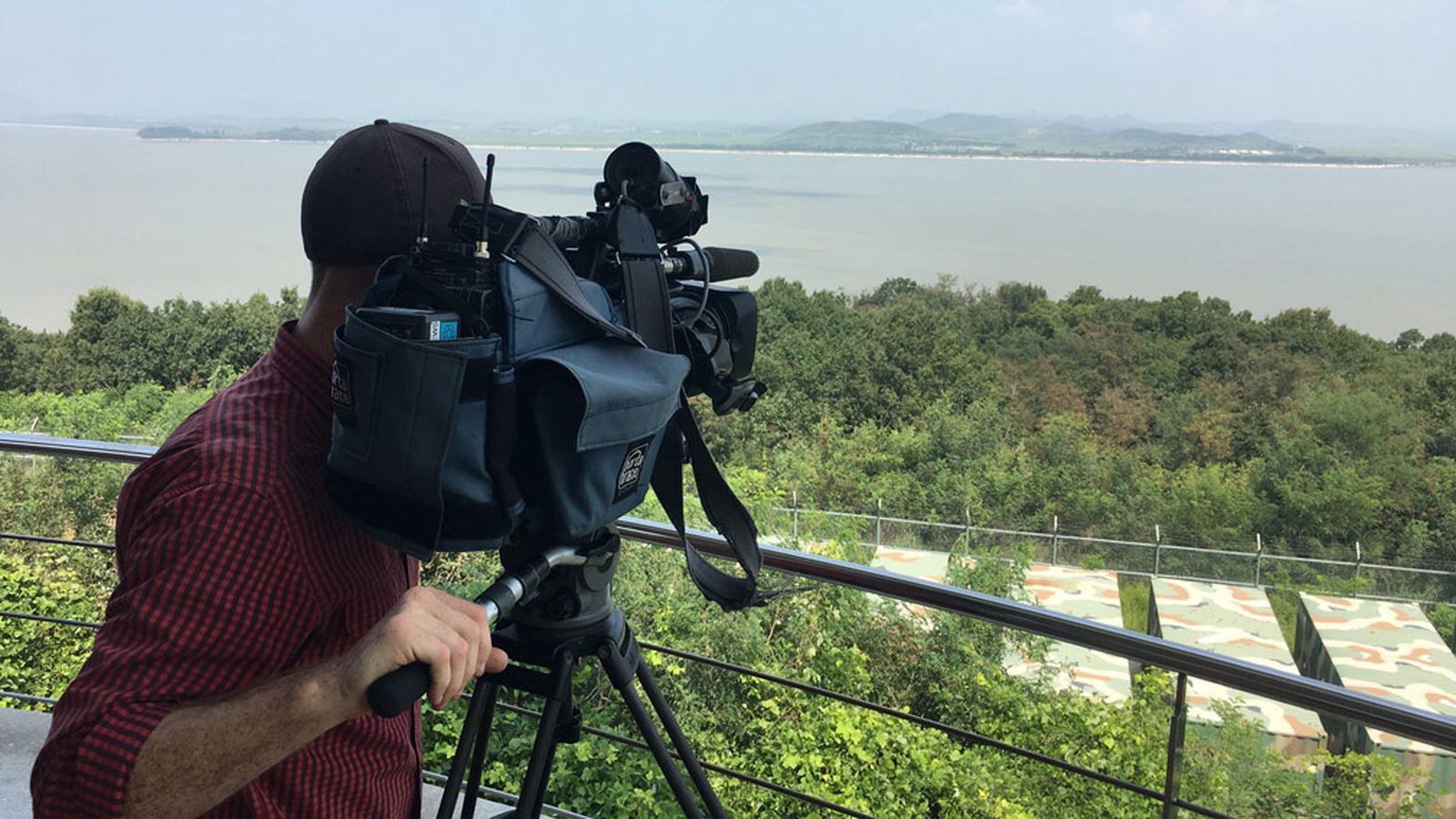
Slide title
Write your caption hereButton
We had to clamber over boulders and constantly duck under low-lying branches, but it was totally worth it for the view at the top. I was able to get the shots we needed and filmed a piece to camera for the news bulletin that evening.
The next day our fixer was able to secure permission for us to enter part of the Demilitarized Zone (DMZ) and shoot some vision of North Korea from a distance. We made it through the checkpoint with no issues and drove to the Peace Observatory where I was able to film shots of North Korea using my long lens.
Our fixer was frantically calling his contact to smooth things over.
In the afternoon however, things started to go pear-shaped. We were moments away from crossing live into an afternoon bulletin when a soldier started telling us that we didn't have permission to film and we must turn the camera off.
We went live and the soldier started waving his hands in front of the lens and I was forced to shut down the camera during the live cross.
Throughout my entire career as a cameraman I have never had to switch off during a live cross as sending black to air is a huge no-no. We ended up missing three of our scheduled live crosses. Fortunately the network understood what was happening so it wasn't a huge deal.
The real issue was whether we were going to get out of this unscathed. At the checkpoint to get out of the DMZ we were detained by the military and they inspected my vision and instructed me to delete everything. Fortunately I had already sent the vision back to Australia.
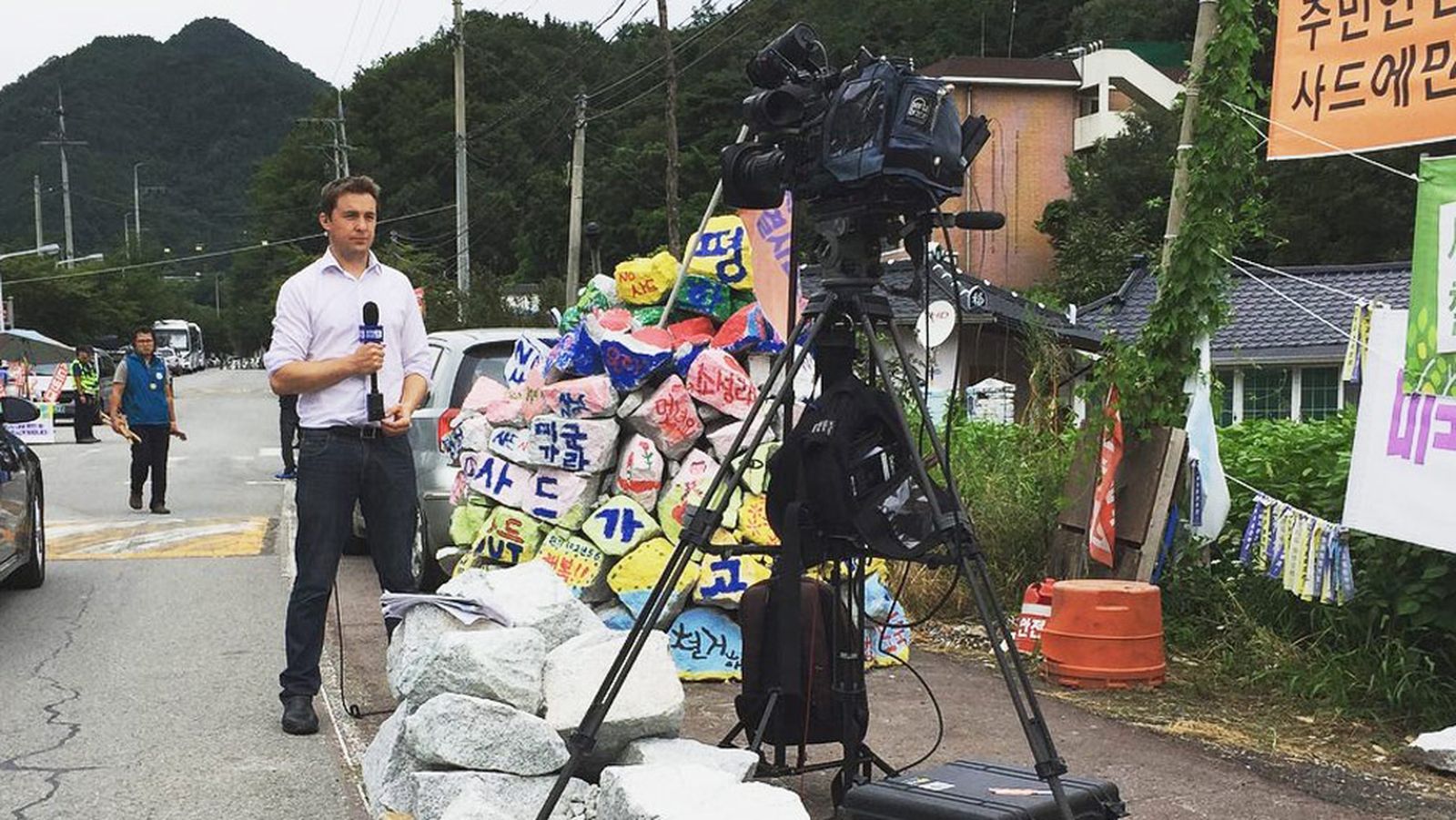
Slide title
Write your caption hereButton
Thankfully, nothing came of it and we were allowed to leave with a military escort.
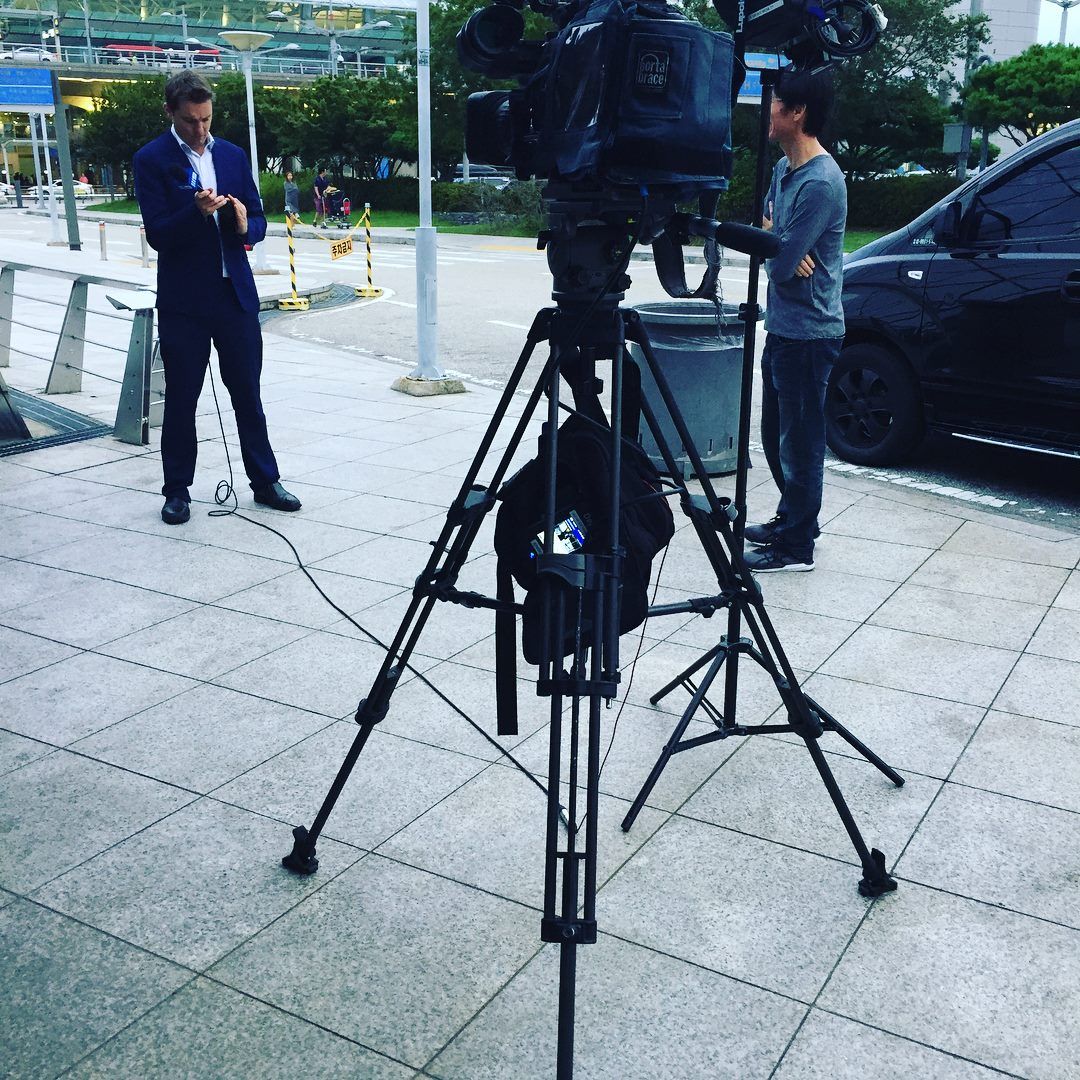
Slide title
Write your caption hereButton
It was a very hairy situation and for a moment there I thought that we might be deported or worse, end up in a South Korean military jail.
Tim and I stayed in Seoul for an additional 3 days, filing stories and doing live crosses for the network without other incidents.
This was certainly one of the more memorable trips of my career. From camping out in front of a courthouse to flying across the globe at the last minute, I always enjoyed the daily variety that came with news gathering.
For further insight into Life Behind the Lens, read about my experience filming during Cyclone Debbie or at the Tokyo 2020 Olympic Games.

